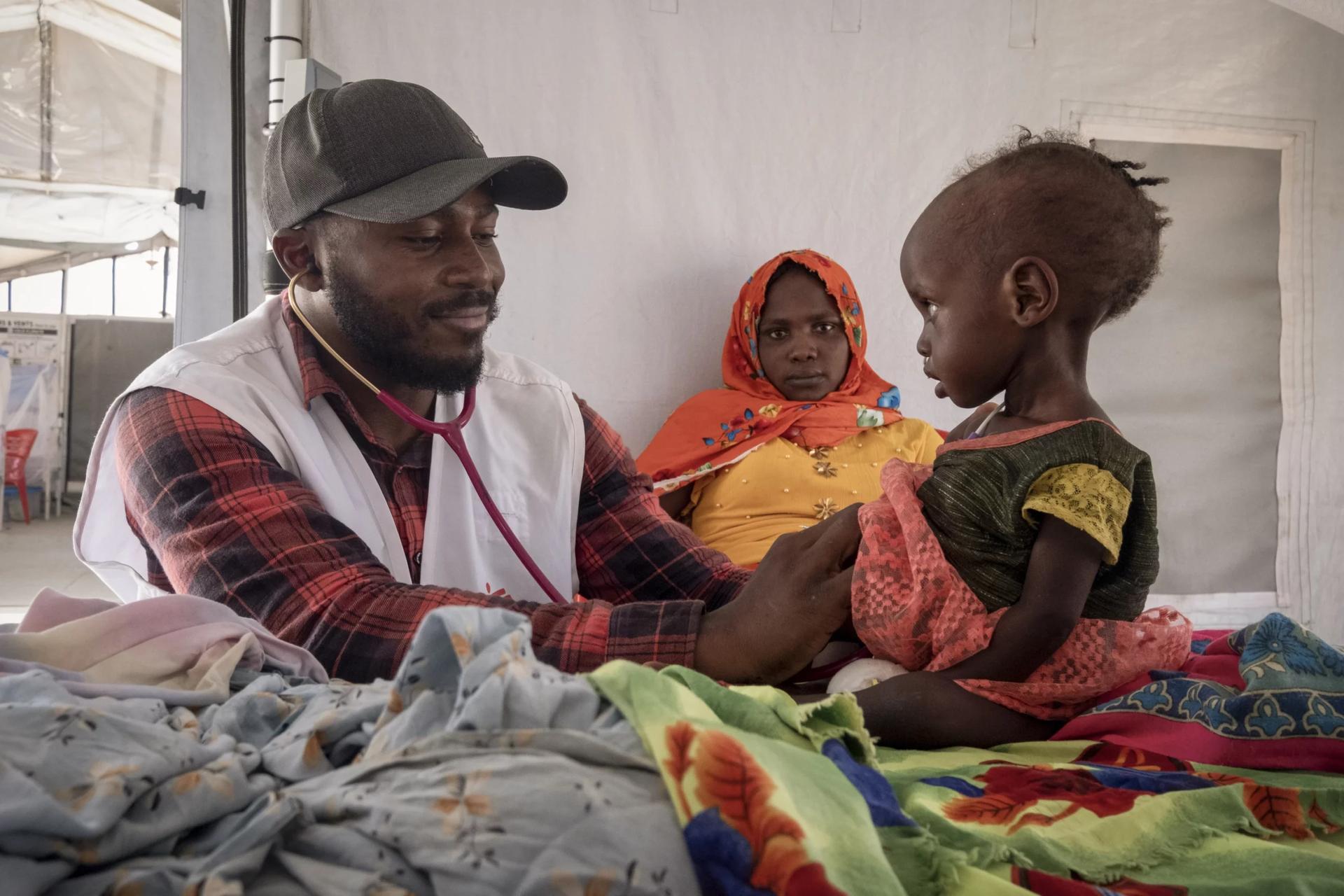YAOUNDÉ, Cameroon – As conflict and economic hardship continue to plague Sudan and South Sudan, the Catholic bishops are calling on the governments of both countries to exempt the Catholic Church from taxes, in order to enable it to accomplish its missions more effectively.
In his opening remarks at the start of the meeting of the Episcopal Conference of Sudan and South Sudan (SSS-CBC), president Cardinal Stephen Ameyu Martin Mulla addressed the ongoing conflicts in Sudan and parts of South Sudan, the economic hardships both countries face, and the social divisions that require a “robust” response from the bishops as leaders.
“As we navigate the financial challenges facing our church, advocating for the exemption of the Catholic Church from taxation is essential,” Ameyu said Feb.18.
“This exemption will enable us to allocate more resources towards our pastoral activities and community services. The church must remain a vibrant presence in our communities and financial burdens should not hinder our mission,” he explained.
Both countries have experienced varying degrees of conflict. South Sudan, one of Africa’s most diverse nations with over 60 major ethnic groups, gained independence from Sudan on July 9, 2011, following a 2005 agreement that ended Africa’s longest-running civil war.
However, in 2013, the new nation descended into chaos when President Salva Kiir accused his former vice-president, Dr. Riek Machar, of plotting to overthrow him. Despite numerous attempts at peace, the two leaders have continued to vie for power and control of resources. Nearly 400,000 people have died, and millions have been displaced as a result.
In 2020, a coalition government was formed, with Kiir and Machar leading the unity government. Yet, despite the peace agreement, implementation has been slow, and violence persists.
In Sudan, conflict erupted on April 15, 2023, between the Sudanese Armed Forces (SAF), led by General Abdel Fattah al-Burhan, and the powerful paramilitary group known as the Rapid Support Forces (RSF), led by General Mohamed Hamdan “Hemedti” Dagalo. Both leaders are fighting for control of the state and its resources.
According to the Global Conflict Tracker, approximately 15,000 people have been killed. Over 8.2 million people have been displaced, with nearly 2 million Sudanese fleeing to unstable regions in Chad, Ethiopia, and South Sudan. The United Nations reports that more than 25 million people now require humanitarian assistance, and worsening food security risks are triggering the “world’s largest hunger crisis.”
Reflecting on these crises, Mulla said the Church needs to offer “a robust response.”
“As we reflect on the current situation in Sudan and South Sudan, we must acknowledge the many challenges that confront us. The church is not only a spiritual beacon but also a crucial player in the social economic landscape of our communities,” the cardinal said.
“Our commitment to education, moral formation, and inter-religious dialogue is paramount in fostering peace and unity among our people,” he said.
The bishops said they believe that it would be hard for the Church to overcome such challenges if its agencies continue to be burdened by taxes.
“The Catholic bishops are concerned about the taxation levied on the missionaries and the services the Church offers in the country,” said Father John Gbembeyo, Pastoral and Social Communication Coordinator in the Sudan Catholic Bishops’ Conference.
In comments to Crux, the priest said that “all projects, services, and programs being implemented in the country are based on the kind donations of the church partners, and those donations and projects are offered to help the vulnerable members in the respective dioceses within the country. “
“The services rendered by the Catholic Church include education, health, and psycho-social support, pastoral programs, among others. Secondly, we have the missionaries made up of men and women who have sacrificed to live in solidarity in our local church. Their sacrifice to join the Church and people of South Sudan is something to be appreciated, but currently, they are to pay higher taxes,” Gbembeyo said.
He indicated that the Church has been in an ongoing discussion with the government to either scrap off the charges or make a decision that will not obscure the stay of the church personnel who are offering great service to communities.
“These steps can help the Church offer services to people who are already in dire economic situations,” he told Crux.
“Resolving the tax exemption issue will encourage more partners to come to our assistance,” he added.
Gbembeyo explained that by offering tax exemptions, donors can motivate Church partners to contribute, driven by their desire to help those in need.
“Our missionaries form part and parcel of the local Church who have voluntarily accepted to be members of our community in order to offer services to their brothers and sisters in the country, its kind to consider their dedication to assist us through the work they are doing,” the priest said.















